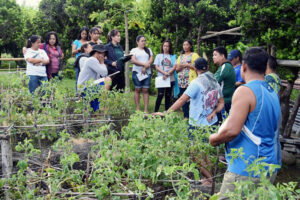FARMERS said on Monday that the government needs to allocate more money from the farmer training budget of the Rice Competitiveness Enhancement Fund (RCEF) to specialist agencies run by the Department of Agriculture (DA).
In a statement, the Federation of Free Farmers (FFF) cited the large share of the training funds that go to the Technical Education and Skills Development Authority (TESDA), and questioned TESDA’s capacity to conduct such training.
RCEF provides funding of P1 billion a year to agricultural training programs, with 70% going to TESDA. The remainder is equally shared by the Agricultural Training Institute (ATI), the Philippine Rice Research Institute and the Philippine Center for Postharvest Development and Mechanization.
“The funds should be used to upgrade the training and extension programs of these DA agencies, in line with the DA’s overall strategy and objective to improve farmer productivity and competitiveness,” FFF National Manager Raul Q. Montemayor said.
The Rice Tariffication Law, or Republic Act No. 11203, funds RCEF from rice import tariffs. The law liberalized rice imports but made importers pay an initial 35% tariff on Southeast Asian grain.
The government, via Executive Order No. 62, has since slashed rice tariffs to 15% on grain from all countries until 2028.
Mr. Montemayor added that TESDA does not have the mandate to provide agricultural training to farmers.
The FFF said that TESDA’s primary function is to distribute scholarship vouchers to trainees in farmer field schools and learning sites which are accredited by the ATI.
The group added that some training centers given scholarship slots by TESDA have reported low levels of farmer enrolment.
“Part of the training fund should also be invested in facilities and systems that will enable concerned DA agencies to sustain their activities even after RCEF,” Mr. Montemayor said. — Adrian H. Halili
